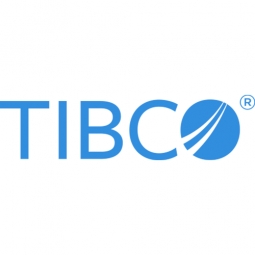TIBCO Spotfire® Analytics Software Helps to Identify and Develop Chemical Compounds In Academic Screening Facility

公司规模
Large Corporate
地区
- Europe
国家
- Germany
产品
- TIBCO Spotfire
- IBDS ActivityBase
技术栈
- Oracle Database
- Data Normalization
- Statistical Calculations
实施规模
- Enterprise-wide Deployment
影响指标
- Cost Savings
- Productivity Improvements
- Customer Satisfaction
技术
- 分析与建模 - 预测分析
- 应用基础设施与中间件 - 数据可视化
- 应用基础设施与中间件 - 数据交换与集成
适用行业
- 生命科学
- 药品
适用功能
- 产品研发
- 质量保证
用例
- 质量预测分析
- 过程控制与优化
服务
- 数据科学服务
- 系统集成
关于客户
The European Molecular Biology Laboratory (EMBL) Chemical Biology Core Facility is a joint venture between EMBL, the German Cancer Research Center (DKFZ), and Heidelberg University. This facility processes screening requests for small chemical molecules, utilizing a carefully chosen screening library of nearly 80,000 commercially available compounds. The aim is to address important biological questions by identifying and developing biotool compounds against novel targets, such as elucidating pathways or modes of action of binding partners. The facility evaluates screening requests for suitability and amenability, develops and optimizes assays, and conducts high-throughput screening campaigns. The facility's project managers report on project progress and decide on the next steps in collaboration with the customer.
挑战
While the introduction of high-throughput techniques and lab automation helped to save a lot of time and manual effort to screen compounds, organizations lacked an easy to handle tool to perform accurate analyses that didn’t require a highly skilled analyst. Moreover, to cope with the tremendous amount of data, the scientists used to evaluate results on a per batch basis, skipping over information from the entire dataset thus missing opportunities to make better decisions. A large volume of complex data has to be assessed throughout the workflow to achieve the goal of delivering high-quality compounds. When the assay is developed and optimized it’s not only the activity or inactivity of a given target that has to be considered, batch size, reagent preparation, temperature, and signal stability need to be evaluated for a robust assay. Moreover, the quality of the screening campaign needs to be supervised to eradicate systematic errors, and hits have to be carefully selected to minimize false positives and false negatives in order to concentrate on the most promising candidates and make the most out of the available resources. Many data evaluation applications have difficulty dealing with the sheer volume of data, let alone handling the data’s multivariate and multiparametric nature.
解决方案
The TIBCO Spotfire enterprise analytics platform was selected by the facility to analyze and support the presentation of large data sets and allow scientists to accelerate the screening process with powerful and interactive visualizations. EMBL Senior Technical Officer Jan Selig was familiar with Spotfire software’s capabilities since he implemented it to perform microarray analysis prior to joining the Core Facility in 2004. Selig is now responsible for lab automation, data, and knowledge management. Spotfire analytics is used by the Core Facility project managers to make critical decisions at key points in the HTS workflow. The Spotfire server – tightly integrated with the Core Facility’s IBDS ActivityBase® data depository of chemical structures, plate content, and experiment information – collects all of the data needed at each stage of the workflow. Very little customization was required because Spotfire analytics is readily adaptable for all types of analysis. In the development stage, the analytics platform is used to evaluate the robustness of an assay and to choose optimum conditions for the large-scale experiment. In the pilot screen phase of the primary screening stage, Spotfire analytics is used to analyze the initial 4,000 substances. The pilot screen usually is done in duplicate. The two sets are used to verify the chosen conditions. Based on this initial screen, the facility decides whether or not to proceed with a full screen of all 80,000 substances in the Core Facility’s library.
运营影响
数量效益

Case Study missing?
Start adding your own!
Register with your work email and create a new case study profile for your business.
相关案例.

Case Study
Case Study: Pfizer
Pfizer’s high-performance computing software and systems for worldwide research and development support large-scale data analysis, research projects, clinical analytics, and modeling. Pfizer’s computing services are used across the spectrum of research and development efforts, from the deep biological understanding of disease to the design of safe, efficacious therapeutic agents.

Case Study
Fusion Middleware Integration on Cloud for Pharma Major
Customer wanted a real-time, seamless, cloud based integration between the existing on premise and cloud based application using SOA technology on Oracle Fusion Middleware Platform, a Contingent Worker Solution to collect, track, manage and report information for on-boarding, maintenance and off-boarding of contingent workers using a streamlined and Integrated business process, and streamlining of integration to the back-end systems and multiple SaaS applications.

Case Study
Process Control System Support
In many automated production facilities, changes are made to SIMATIC PCS 7 projects on a daily basis, with individual processes often optimised by multiple workers due to shift changes. Documentation is key here, as this keeps workers informed about why a change was made. Furthermore, SIMATIC PCS 7 installations are generally used in locations where documentation is required for audits and certification. The ability to track changes between two software projects is not only an invaluable aid during shift changes, but also when searching for errors or optimising a PCS 7 installation. Every change made to the system is labour-intensive and time-consuming. Moreover, there is also the risk that errors may occur. If a change is saved in the project, then the old version is lost unless a backup copy was created in advance. If no backup was created, it will no longer be possible to return to the previous state if and when programming errors occur. Each backup denotes a version used by the SIMATIC PCS 7 system to operate an installation. To correctly interpret a version, information is required on WHO changed WHAT, WHERE, WHEN and WHY: - Who created the version/who is responsible for the version? - Who released the version? - What was changed in the version i.e. in which block or module of the SIMATIC PCS 7 installation were the changes made? - When was the version created? Is this the latest version or is there a more recent version? - Why were the changes made to the version? If they are part of a regular maintenance cycle, then is the aim to fix an error or to improve production processes? - Is this particular version also the version currently being used in production? The fact that SIMATIC PCS 7 projects use extremely large quantities of data complicates the situation even further, and it can take a long time to load and save information as a result. Without a sustainable strategy for operating a SIMATIC PCS 7 installation, searching for the right software version can become extremely time-consuming and the installation may run inefficiently as a result.

Case Study
Drug Maker Takes the Right Prescription
China Pharm decided to build a cloud-based platform to support the requirements of IT planning for the next five to ten years which includes a dynamic and scalable mail resource pool platform. The platform needed to have the following functions: all nodes support redundancy, ensuring service continuity and good user experience, simple and easy-to-use user interfaces for end users and administrators and good compatibility and supports smooth capacity expansion.

Case Study
ELI LILLY ADOPTS MICROMEDIA’S ALERT NOTIFICATION SYSTEM
Pharmaceutical production is subject to a strict set of enforced rules that must be adhered to and compliance to these standards is critically necessary. Due to the efforts of WIN 911’s strategic partner Micromedia, Lilly was able to adopt an alarm notification infrastructure that integrated smoothly with their existing workflows and emergency hardware and protocols. These raw energy sources enable the industrial process to function: electricity, WIN-911 Software | 4020 South Industrial Drive, Suite 120 | Austin, TX 78744 USA industrial steam, iced water, air mixtures of varying quality. Refrigeration towers, boilers and wastewater are monitored by ALERT. Eli Lilly identified 15000 potential variables, but limitations compelled them to chisel the variable list down to 300. This allowed all major alarms to be covered including pressure, discharge, quantity of waste water discharged,temperature, carbon dioxide content, oxygen & sulphur content, and the water’s pH.



